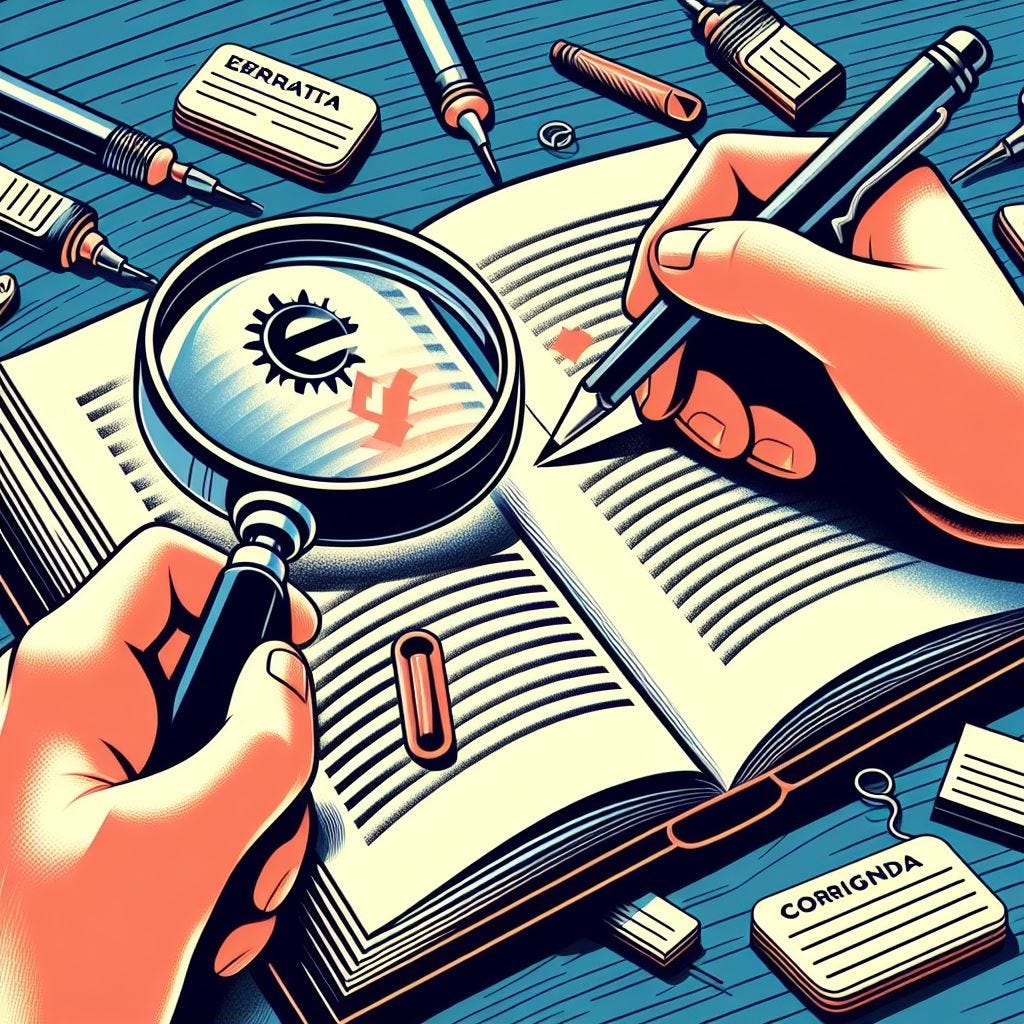
May 2, 2024 - Vol. 2, Issue 20.
Welcome to Infophilia, a weekly letter about the human love of information and connections. This is one of the places where I’m pioneering an evolutionary, social, and positive psychology of information, avant-garde research. If this is your first time, I am glad to have you here. Check out the video or Archive or start with Infophilia and the Dopamine Connection! Welcome back everybody else! As always, thanks for reading.
Cite this paper in APA as: Coleman, A.S. (2024, May 2). Errata et corrigenda, and skimming: AI policies in scholarly publishing. Infophilia, a Positive Psychology of Information, 2 (20). https://infophilia.substack.com/
The pursuit of truth is paramount in scholarly publishing and investigative journalism. Yet, despite our best intentions, writers and journalists are fallible human beings prone to error. Fortunately, human ingenuity has developed ways of dealing with incorrectly published information head on: corrections and retractions. Newspapers routinely issue corrections while in the scholarly sphere, lists of small mistakes that are corrected are issued as Errata et Corrigenda (errors and corrections). Journals, newspapers, and publishers issue Corrections on their website.
A retraction, on the other hand, is a far more severe measure, akin to a “death penalty," because it signifies the complete withdrawal or removal of a previously published research paper from the scientific literature. Retractions typically occur when significant flaws or ethical issues are discovered in the research, such as images or data fabrication, plagiarism, or other serious errors that undermine the validity or reliability of the findings. For researchers, a retraction can have serious professional consequences, including damage to their reputation, loss of funding, and limitations on future career opportunities. Retractions undermine public trust in science and academic publishing, as they highlight instances where the peer review and editorial processes failed to detect or address problematic research. Retractions have been increasing in recent years. Google Scholar and PubMed index them. Retraction Watch Database, now openly available, a part of CrossRef, began as a passion project in 2010.
I want to draw attention to these practices of corrections and retractions, especially for those of us who have developed our skimming skills. In an era where information is abundant and attention spans are dwindling, the tendency to skim through content has been growing rapidly. While skimming we may inadvertently overlook corrections and retractions, potentially perpetuating inaccuracies or misunderstandings. Cultivating an awareness of these mechanisms is crucial.
I’ve also been wondering how I should handle the small mistakes I make while writing here. I spellcheck, proofread, fact check, verify, and document - my Notes are longer than the essay sometimes - but I still make mistakes!! Often they are small typos, unimportant. Still, incorrectly typed dates are factual errors. I correct as I discover them but I have not issued email corrections.
Corrections and retractions serve as pillars of integrity in disseminating information. They are also reputation management aids for authors and publishers. They advance knowledge, foster critical thinking and humility in all folks in the ecosystem - writers, readers, editors, reviewers, policy makers, and publishers!



